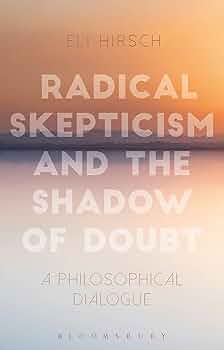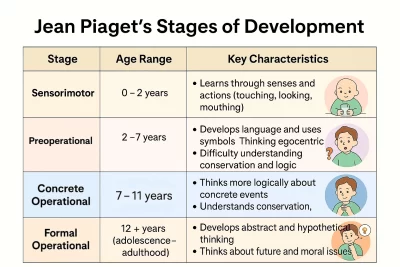
Epokhe: How Can We Embrace Skepticism and Doubt in Thought

Epochē, a concept rooted in Greek philosophy, translates to "suspension of judgment" and is a critical tool in the toolkit of skepticism. This philosophical principle, which was originally put forth by ancient Skeptics, suggests that by adopting a non-involved stance in the face of various controversies, individuals can attain a profound state of peace of mind. In a world that often feels dictated by passionate beliefs and dogmas, the practice of epokhe encourages a pause, inviting us to step back and examine our assumptions carefully. By interrupting the fixed trajectories of thought, we open ourselves up to a broader spectrum of understanding, making it an invaluable approach in both personal and intellectual explorations.
The concept of epokhe has garnered the attention of many philosophers through the centuries, particularly with the advent of modern philosophy. One pivotal figure in this discourse is Edmund Husserl, who adapted the notion of epochē in the early 20th century as part of his phenomenological method. By proposing that philosophers should engage in a form of Cartesian doubt—placing beliefs "in brackets"—Husserl aimed to focus on consciousness and its pure appearances. Through this suspension of judgment, we can clearly examine not only our consciousness but also how objects present themselves to our awareness, thereby enriching our understanding of existence itself.
- The Concept of Epochē: A Historical Overview
- The Role of Skepticism in Ancient Philosophy
- Edmund Husserl’s Adaptation of Epochē
- The Importance of Suspension of Judgment
- Practical Applications of Epochē in Modern Thought
- Embracing Doubt: Benefits for Personal and Intellectual Growth
- Overcoming Certainty: Navigating Controversial Issues
- Epochē and the Quest for Peace of Mind
- Conclusion: Integrating Skepticism into Everyday Life
The Concept of Epochē: A Historical Overview
The historical roots of epochē can be traced back to the ancient Skeptics, such as Sextus Empiricus, who posited that knowledge is inherently limited and that suspending judgment can lead to tranquility. In a time when prevailing philosophies often claimed absolute truths, the skeptics introduced the revolutionary idea that freedom from dogmatic beliefs could be liberating. They proposed that by withholding beliefs about the existence or non-existence of various phenomena, individuals could maintain a sense of equilibrium amidst uncertainty.
The Skeptic Paradigm
Ancient Skeptics argued that we should not commit to any stance on controversial issues but rather embrace a mindset of inquiry. The epokhe they advocated allowed individuals to navigate through conflicting ideologies without succumbing to the pressure of making definitive conclusions, thus fostering a more relaxed state of intellect and emotion. This notion gained traction throughout history, influencing later philosophical movements and encouraging thinkers to regard knowledge as a dynamic, ever-evolving phenomenon rather than a fixed entity.
The Role of Skepticism in Ancient Philosophy
Today, the practice of skepticism remains a cornerstone of philosophical inquiry. In ancient philosophy, it played a crucial role in encouraging critical examination of beliefs. Skeptics challenged the status quo, arguing that perceived knowledge could often lead to confusion and conflict. By employing the principle of epochē, they illustrated how letting go of rigid convictions could lead to deeper understanding and harmony. This skeptical foundation has paved the way for various philosophical traditions, including empirical inquiry and the scientific method.
Challenges to Certainty
The practice of skepticism invites individuals to question even the most widely accepted beliefs. By exercising the principle of epokhe, they can challenge the foundations of certainty, leading to a more inquisitive mindset. Historical figures such as Descartes utilized similar techniques in their quests for knowledge, highlighting the significant role epochē has played throughout the evolution of philosophical thought. This leads us to the contemporary understanding of skepticism and its implications for modern philosophy.
Edmund Husserl’s Adaptation of Epochē
In the 20th century, the German philosopher Edmund Husserl incorporated the notion of epochē into his phenomenological approach. By emphasizing the need to bracket presuppositions and beliefs, Husserl proposed a method to uncover the essence of consciousness itself, viewing it as a bearer of meaning rather than a passive receiver. This process not only deepens our understanding of subjective experience but also highlights the necessity of skepticism in philosophy.
The Phenomenological Method
Husserl's adaptation of epokhe offers a structured method for examining the structures of consciousness. By suspending judgment about the external world, philosophers can focus solely on the phenomena as they present themselves to awareness. This shift in perspective allows for a rich exploration of lived experiences, revealing insights that might otherwise remain obscured by preconceived notions. Through Husserl's work, we see the practical application of epochē in understanding the complexities of human consciousness.
The Importance of Suspension of Judgment
The practice of suspending judgment fosters a greater awareness of our cognitive processes and the biases that color our perceptions. By embracing epokhe, we can cultivate an openness that allows for diverse viewpoints to coexist peacefully. This openness enriches our understanding, enabling us to appreciate the multifaceted nature of reality.
Cultivating Critical Thinking
Incorporating the principle of epochē into our thought processes encourages critical thinking and reflection. When we momentarily suspend our judgments, we create a space for curiosity and inquiry, leading to deeper insights and understanding. This practice promotes a culture of questioning rather than dogmatism, enabling constructive dialogue and collaboration in personal and intellectual pursuits.
Practical Applications of Epochē in Modern Thought
In contemporary discourse, epokhe is particularly relevant as we navigate an increasingly polarized world. The capacity to suspend our judgments can act as a bridge to understanding differing perspectives, empowering individuals to engage meaningfully in discussions that bear the weight of societal importance.
Approaching Controversial Issues
- Encouraging Dialogue: By employing epochē, individuals can interact with contentious topics more thoughtfully, valuing dialogues that prioritize understanding over proving a point.
- Promoting Empathy: This approach fosters empathy as we learn to appreciate the complexities of others' experiences rather than dismiss them out of hand.
- Building Community: The suspension of judgment can cultivate a shared sense of community by highlighting common ground amidst differing views.
Embracing Doubt: Benefits for Personal and Intellectual Growth
Embracing doubt, using epokhe as a guiding principle, can lead to significant personal and intellectual growth. The willingness to question our beliefs enables us to challenge assumptions and ultimately fosters resilience and adaptability in the face of ambiguity.
Transformative Experiences
The practice of epochē can result in transformative experiences, illuminating paths previously obscured by rigid adherence to certainty. Individuals who integrate skepticism into their lives often report increased openness, creativity, and a sense of freedom from the constraints of dogmatic thinking.
To navigate controversial issues effectively, individuals can employ epokhe as a method to circumvent the pitfalls of black-and-white thinking. This allows for a more nuanced exploration of topics that might typically evoke extreme emotional responses.
The Role of Dialogue
- Facilitating Connection: By focusing on understanding rather than judgment, epochē can facilitate deeper connections in conversations surrounding difficult subjects.
- Encouraging Reflection: It encourages participants in discussions to reflect on their biases, leading to richer dialogues that consider multiple viewpoints.
- Fostering Solutions: This practice can yield innovative solutions to complex problems, as it allows for flexibility and the integration of diverse perspectives.
Epochē and the Quest for Peace of Mind
In a world rife with uncertainty and information overload, epokhe serves as a beacon for those seeking inner peace. The act of suspending judgment encourages a thoughtful exploration of our thoughts and feelings, setting the stage for tranquility amidst chaos.
Creating Space for Reflection
The practice of incorporating epochē into our daily lives allows us to create a space for reflection. This pause invites us to examine our emotional responses and thoughts before reacting, ultimately leading to more constructive approaches towards challenges we face.
Conclusion: Integrating Skepticism into Everyday Life
To embrace skepticism and doubt in thought is to welcome a transformative practice that can profoundly influence our lives. By adopting epochē as a guiding principle, we not only enhance our critical thinking skills but also cultivate an openness to the complexity of existence that surrounds us. Whether through examining consciousness as illuminated by Husserl or engaging thoughtfully in controversial topics, the value of epokhe resonates through both our intellectual endeavors and personal experiences. In doing so, we foster a mode of existence that thrives on inquiry, connection, and an enduring quest for understanding.
Did you find this article helpful? Epokhe: How Can We Embrace Skepticism and Doubt in Thought See more here Education.
Leave a Reply






Related posts